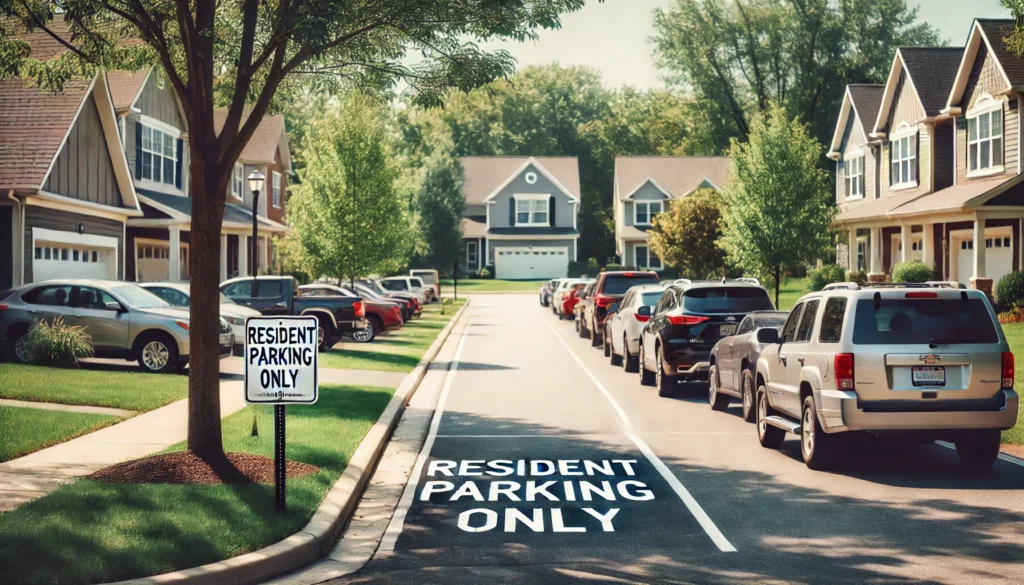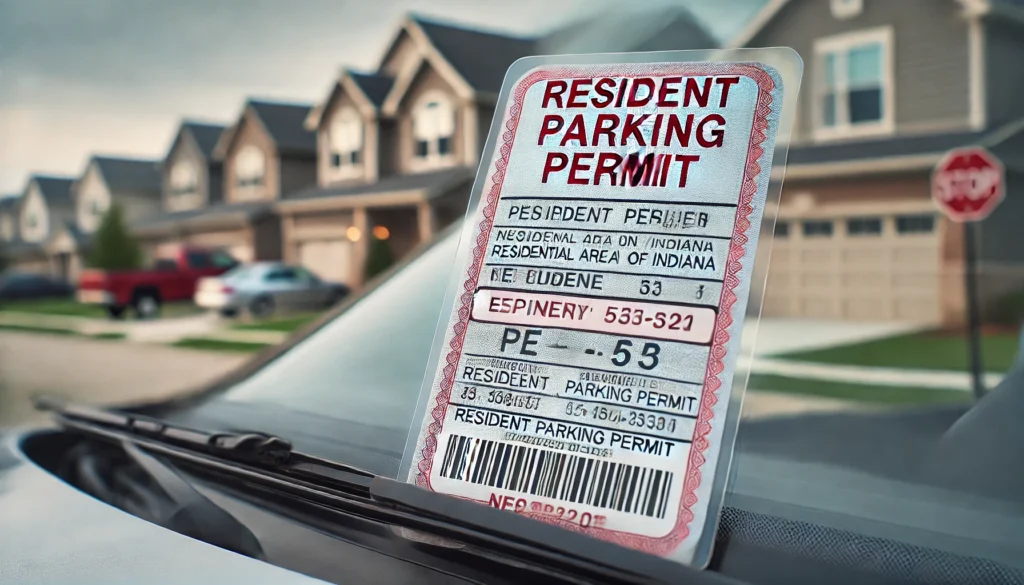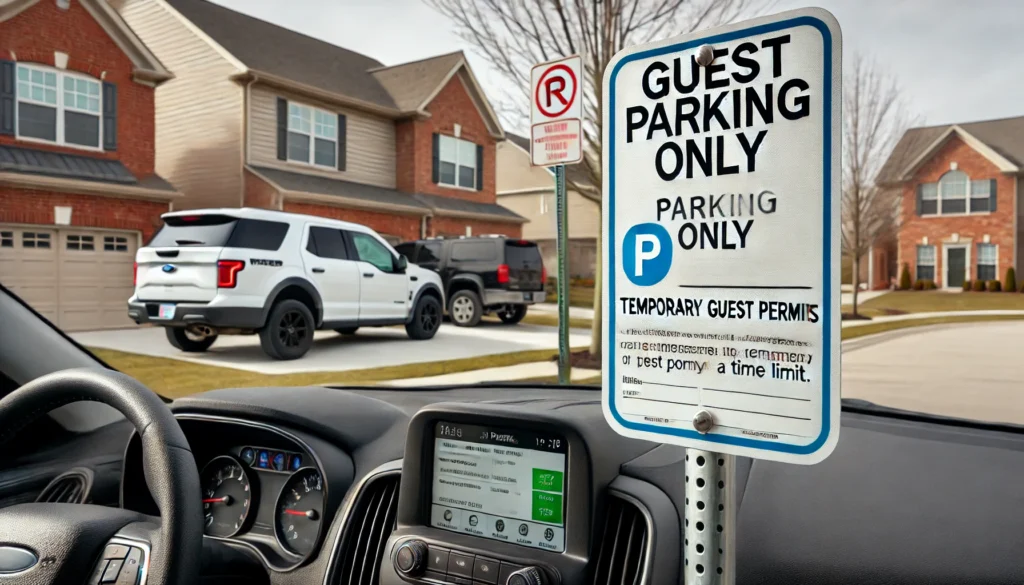
Indiana 72.13: Resident Park/HMD is a critical regulation that governs parking within residential areas managed by Homeowners Management Districts (HMDs) in Indiana. It aims to provide residents with fair access to parking while reducing unauthorized use of spaces. Understanding this regulation is essential for residents, property owners, and visitors to ensure smooth compliance and avoid penalties.
In this detailed guide, we will break down every aspect of Indiana 72.13, from permit applications to enforcement mechanisms, offering a one-stop resource for all your questions and concerns.
What is Indiana Regulation 72.13?
Indiana Regulation 72.13 establishes rules for managing parking in designated residential areas. It mandates that parking spaces in these zones are reserved for residents and their guests, ensuring that non-residents do not disrupt the community’s parking system. The regulation empowers Homeowners Management Districts to oversee compliance, enforce rules, and address violations effectively.
Key Goals of Regulation 72.13:
- Promote Organized Parking: Allocate spaces efficiently for residents.
- Enhance Community Experience: Minimize disputes over parking.
- Deter Unauthorized Use: Enforce penalties for non-compliance.
Key Components of Indiana 72.13
Resident Parking Permits
To legally park in an HMD-regulated area, residents must obtain a parking permit. These permits ensure fair access for eligible individuals and limit misuse by non-residents.
Permit Application Process:
- Eligibility Criteria: Applicants must provide proof of residency within the HMD.
- Required Documents: These may include a utility bill, lease agreement, and vehicle registration.
- Fees: Fees vary by district but typically cover administrative costs.
- Renewal: Permits usually require annual renewal to remain valid.
Guest Parking Rules
Temporary permits are available for guests of residents. These permits allow short-term parking within designated areas, with specific time limits to prevent abuse.
Enforcement Mechanisms
Regulation 72.13 empowers HMDs to monitor compliance and penalize violations through fines, towing, or revocation of permits.
Why Indiana 72.13 Matters
Indiana 72.13 is more than just a set of rules; it’s a framework for fostering community harmony. By ensuring equitable parking access, the regulation benefits:
- Residents: Guarantees parking availability near their homes.
- HMDs: Simplifies management and reduces complaints.
- Visitors: Provides clear guidelines for temporary parking.
Without this regulation, neighborhoods risk facing overcrowding, disputes, and misuse of limited parking spaces.
How to Obtain a Parking Permit
Follow these steps to secure your parking permit under Indiana 72.13:
- Determine Eligibility: Verify that you live within an HMD-regulated area.
- Prepare Documents: Gather proof of residency and vehicle ownership.
- Submit Application: Complete the application form online or at the local HMD office.
- Pay Fees: Submit the applicable fee to process your permit.
- Receive Permit: Once approved, display the permit visibly in your vehicle.
Here’s a table summarizing the permit requirements:
| Requirement | Details |
|---|---|
| Proof of Residency | Utility bill, lease agreement, or property deed |
| Vehicle Information | Registration documents |
| Application Fee | Varies by HMD |
| Permit Validity | Typically 1 year |
Enforcement of Indiana 72.13
HMDs are tasked with monitoring compliance. Common enforcement actions include:
- Fines: Issued to vehicles parked without valid permits.
- Towing: Applied to vehicles that repeatedly violate rules.
- Community Reporting: Residents can report unauthorized vehicles to HMD authorities.
To avoid penalties, always ensure your permit is visible and up-to-date.
Challenges and Criticisms
While Indiana 72.13 is widely praised, it has its challenges. Some common criticisms include:
- Cost Concerns: Permit fees can be burdensome for some residents.
- Limited Guest Access: Stringent guest parking rules may inconvenience visitors.
- Enforcement Disputes: Residents sometimes report inconsistencies in enforcement.
These issues highlight the importance of transparent communication between residents and HMDs to address grievances.
Comparisons with Similar Laws in Other States
Indiana 72.13 shares similarities with parking regulations in other states, such as California’s residential parking programs. However, Indiana’s focus on HMDs and community-driven management sets it apart. This localized approach allows for tailored solutions that meet the unique needs of each district.
FAQs
What happens if I park without a permit?
Unauthorized vehicles may face fines, towing, or both.
Can permits be transferred to another vehicle?
No, permits are vehicle-specific and must be updated for new vehicles.
Are there exemptions for medical or emergency visitors?
Temporary permits may be issued for such cases at the discretion of HMDs.
What is the appeal process for fines?
Contact your local HMD office to file an appeal, providing evidence to support your case.
Can HMD boundaries change over time?
Yes, boundaries may be adjusted based on community needs and growth.
Conclusion
Indiana 72.13: Resident Park/HMD is a vital regulation that ensures fair and organized parking for residents in HMD areas. By obtaining the appropriate permits and adhering to the rules, you can enjoy hassle-free parking while contributing to a harmonious community environment. We hope this guide has provided all the information you need to navigate the system effectively. For any additional questions, consult your local HMD office or explore our resources.
Additional FAQs of Indiana 72.13: Resident Park/HMD:
How are disputes between neighbors over parking resolved under this regulation?
Disputes are usually handled by the Homeowners Management District. Residents can file a formal complaint, and the HMD mediates to find a solution.
Are there specific hours when guest parking is allowed?
Guest parking rules, including hours, vary by district. Check with your local HMD for precise guidelines.
Can businesses operating within an HMD apply for parking permits?
Typically, Indiana 72.13 focuses on residential parking. However, businesses may have separate provisions or designated parking zones.
What should I do if my permit is lost or stolen?
Report the loss to your local HMD immediately. They will guide you through the process to replace the permit, which may include a small fee.
Is there a grace period for new residents to obtain a permit?
Many HMDs allow a brief grace period for new residents to apply for a permit. This period typically ranges from one to two weeks, but local regulations may vary.
Recommended Articles:
Indiana 72.13: Resident Park/HMD – Comprehensive Guide
Beyond Wonderland 2024 Eli Brown 26.5k Subscribers Subscribe – Ultimate Guide
Complete Guide to Dometic Part Number 331213a8.000 Overload Protector
Timberwolves vs Phoenix Suns Match Player Stats: A Comprehensive Breakdown
Comprehensive Guide to www Eyexconcom – Features, Insights, and Benefits








